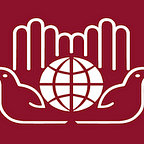Designing a Welcoming Network for Asylum Seekers in New York City
For the inaugural Design for Humanity Summit in June of 2018, the Asylee Designs team addresed the case study of asylum seekers in New York City.
Below is the Asylee Designs team contribution to the newly released Design for Humanity Summit Yearbook available for download here.
Every year, thousands of asylum seekers must flee persecution in their home country to seek safety in New York City. Yet, their journey does not end at the airport. Once in New York, they must navigate a convoluted legal process, find housing and work, identify resources and build new support networks. Asylum seekers must often rely on informal community networks and supportive individuals to find the resources they need.
By using human centered design and design thinking principles, Asylee Designs has been running a process in New York City since January 2018 to address these issues and develop an intervention in response. The team consists of three asylum seekers (from Malaysia, Venezuela, and Kenya), one program coordinator, one communications specialist, and a social designer. Together, they conducted a design process to identify the gaps in services in New York City, brainstorm solutions and identify interventions.
This process was driven by asylum seekers themselves, who worked together to identify the most significant existing needs and elevate the human nuances of the asylum experience, quickly forgotten. Focus groups included asylum seekers from many different backgrounds, who all spoke to the challenges of accessing services in NYC.
As a result of this process, the team developed two defining insights:
- There is a lack of centralized, trustworthy, updated and understandable information for asylum seekers. Asylum seekers often lack access to information about reliable resources in the city, as well as mentors who can help answer questions about the asylum process. As a result, they are more vulnerable to scams and undesirable experiences. They also spend valuable time and money seeking resources from organizations that are unable to help.
- Networks are Key: The human connection, networking, and community building have been the pillar for success for those who have gained asylum in New York City. Asylum seekers themselves are the “experts” in surviving New York City and are often willing to share their insights with one another. These networks must be strengthened.
Based on these two foundational insights, Asylee Designs is currently working on ‘Bridge Builders’, a program that breaks divisions by fostering the willingness to share knowledge and support peers going through a similar journey. The program formalizes the information exchange, and provides the users with tools that serve as a platform to better advice asylum seekers in need of guidance. The ultimate goal of the program is to lower the barriers for asylum seekers to connect with empathetic humans that understand their struggle and recognize their value.
Learn more about the Design for Humanity Summit II, taking place June 21, 2019 at Fordham University’s McNally Amphitheatre here.
About the IOM — UN Migration
Established in 1951, IOM is the leading inter-governmental organization in the fi eld of migration and works closely with governmental, intergovernmental and non-governmental partners. With 173 member states, a further 8 states holding observer status and offices in over 100 countries, IOM is dedicated to promoting humane and orderly migration for the benefit of all. It does so by providing services and advice to governments and migrants. IOM works to help ensure the orderly and humane management of migration, to promote international cooperation on migration issues, to assist in the search for practical solutions to migration problems and to provide humanitarian assistance to migrants in need, including refugees and internally displaced people
About the IIHA
The Institute of International Humanitarian Affairs (IIHA) prepares current and future aid workers with the knowledge and skills needed to respond effectively in times of humanitarian crisis and disaster. Our courses are borne of an interdisciplinary curriculum that combines academic theory with the practical experience of seasoned humanitarian professionals. The IIHA also publishes on a wide range of humanitarian topics and regularly hosts a number of events in the New York area, including the annual Humanitarian Blockchain Summit and Design for Humanity Summit.
For media inquiries please contact:
Camille Giacovas
Communications & Research Officer, IIHA
cgiacovas@fordham.edu
Angela Wells
Public Information Officer for the International Organization for Migration’s Department of Operations and Emergencies
awells@iom.int
